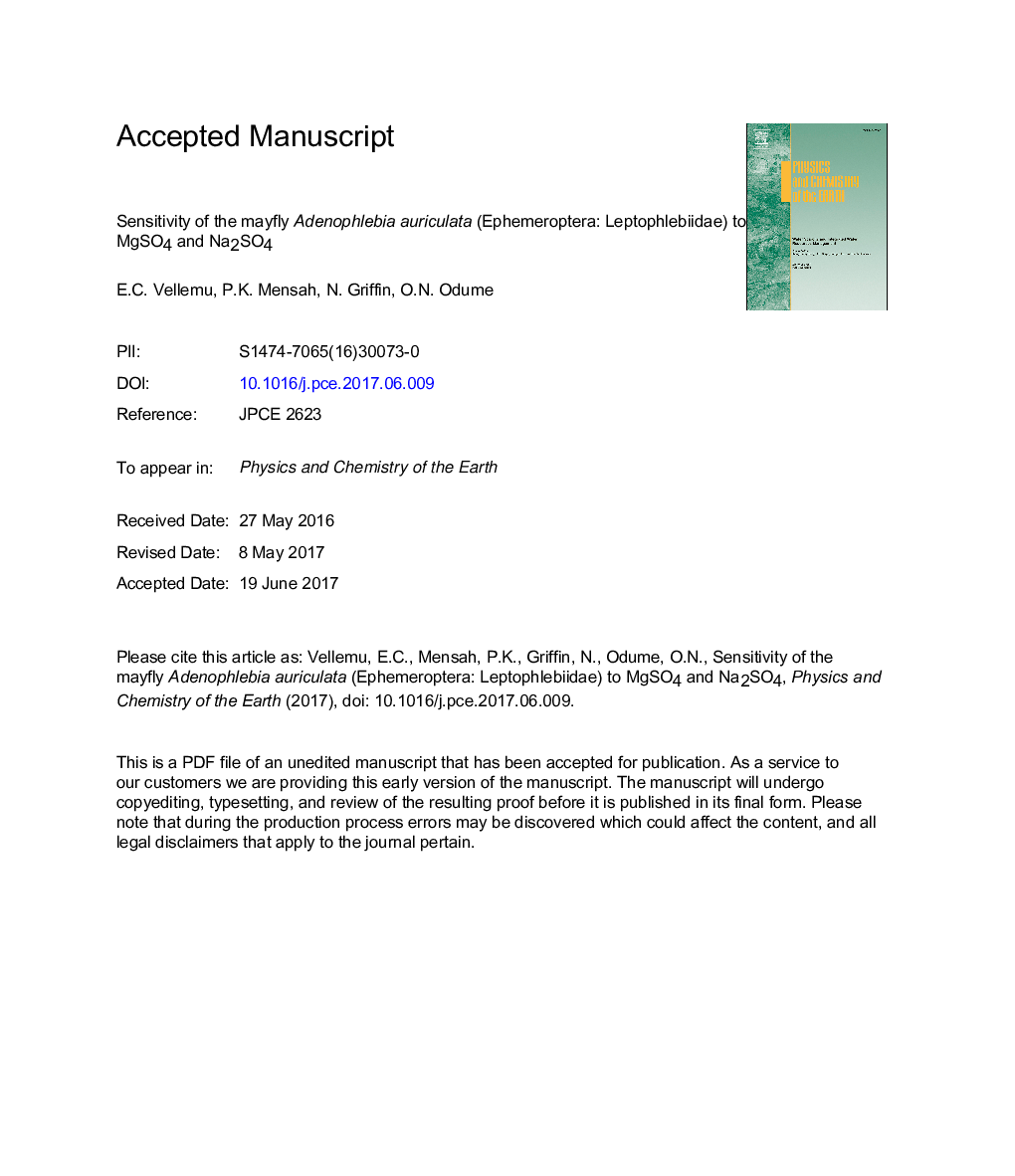| Article ID | Journal | Published Year | Pages | File Type |
|---|---|---|---|---|
| 5784549 | Physics and Chemistry of the Earth, Parts A/B/C | 2017 | 17 Pages |
Abstract
Acid mine drainage (AMD) continues to deteriorate water quality in freshwater ecosystems. Sulphates, a major salt component in AMD, can exacerbate AMD effects in freshwater because salts are toxic to aquatic life in high concentrations. Sulphates are predominant in South African AMD impacted freshwater ecosystems. In this study, the sensitivity of nymphs of the mayfly Adenophlebia auriculata (Ephemeroptera: Leptophlebiidae) was investigated by exposing the organisms to magnesium sulphate (MgSO4) and sodium sulphate (Na2SO4) as models of mining salinisation in short-term (96 h) and long-term (240 h) in static system tests. Short-term and long-term lethal concentrations of each salt were estimated using regression analyses. The results indicated that A. auriculata was more sensitive to MgSO4 (LC50 = 3.81 g/L) than Na2SO4 (LC50 = 8.78 g/L) after short-term exposures. However, this species became sensitive to Na2SO4 (LC10 = 0.19 g/L) but tolerant to MgSO4 (LC10 = 0.35 g/L) after long-term exposures. These results suggest that the 0.25 g/L sulphate compliance limit for South Africa is inadequate to protect A. auriculata from Na2SO4 toxicity in the long-term, yet it overprotects this species from MgSO4 exposures in the short-term. The findings of this study are an important major step in understanding the ecological effects of AMD to aquatic life.
Related Topics
Physical Sciences and Engineering
Earth and Planetary Sciences
Geochemistry and Petrology
Authors
E.C. Vellemu, P.K. Mensah, N.J. Griffin, O.N. Odume,
